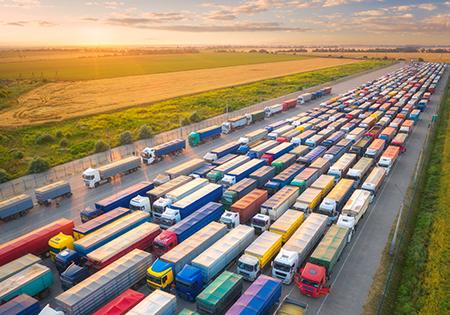
Starting June 1st, 2023 Our warehouse fee will be $0.65/cubic foot per month
In effort to lower the warehouse storage fee during inflation, we have went narrow aisle racking.This construction took us four months but the project is finally completed. With narrow aisle racking, we are able to drop storage by 24%.We as partners will go through this inflation together.
01/20/2025
The transportation and logistics sector may see significant shifts in 2025 as federal tax policies evolve under the current administration. Discussions around revisiting and extending key elements of the Tax Cuts and Jobs Act (TCJA) have gained momentum, with renewed focus on supporting businesses through targeted tax reforms.
With a Republican-controlled government, legislative changes to tax policy have become a priority. The administration is examining ways to reignite economic growth, particularly within industries like transportation and logistics that form the backbone of the economy.
Key components of the TCJA, originally enacted during Donald Trump’s presidency, are scheduled to sunset soon, creating urgency for policymakers. This law, which introduced substantial tax reductions for individuals and corporations, has been credited with incentivizing business growth. Efforts to extend its provisions, however, face challenges related to funding and political alignment.
One prominent aspect under consideration is the 20% deduction for qualified business income, a boon for privately held companies. Proposals to reduce corporate tax rates further—particularly for domestic manufacturers—are also being discussed to encourage companies to increase operations within the United States.
Federal tax reforms under discussion could have direct and indirect implications for the transportation and logistics industry. Key proposals include:
The administration may push for a return to 100% bonus depreciation, enabling companies to immediately deduct the full cost of significant capital investments such as trucks, machinery, and other equipment. This policy could incentivize businesses to modernize their operations and invest in fleet expansion.
The federal gift and estate tax exemption is slated to decrease by half at the close of 2025. Companies in the logistics sector might consider transitioning ownership now, benefiting from the current exemption levels and potentially lower valuations amidst a freight market downturn. Forward-looking planning could offer substantial financial advantages for owners and successors alike.
Tax policies could stimulate growth in renewable fuels, including ethanol, biodiesel, and renewable diesel. By lowering corporate taxes, companies within this sector may have additional resources to fund innovation, improve production capabilities, and strengthen supply chains, indirectly benefiting logistics businesses focused on sustainable practices.
In addition to tax changes, regulatory shifts could reshape the industry. Two key areas of focus include tariffs and infrastructure investment:
Proposals to impose tariffs on imported goods have resurfaced, with potential consequences for the logistics industry. Items such as truck parts sourced from China, Mexico, or Canada may see price increases, driving up operational costs. Tariff proposals include:
A phased 60% tariff on Chinese imports, with higher rates also mentioned as possibilities.
A universal tariff of 10–20% on all imports to the U.S.
A 25% tariff on goods from Mexico and Canada.
Infrastructure improvements, such as upgrading highways, bridges, and ports, are critical for enhancing transportation networks. Investment in these areas could reduce delivery times, improve efficiency, and lower costs for logistics businesses in the long run.
Staying ahead of tax policy changes is essential for businesses in the transportation and logistics industry. Flexible strategies and proactive planning can help companies navigate uncertainties. For instance:
Evaluate current tax benefits and plan for potential adjustments.
Monitor market conditions and regulatory updates to anticipate operational impacts.
Partner with experienced advisors to craft a tailored approach to new tax regulations.
At Worldcraft Logistics, we understand the complexities of evolving tax and regulatory landscapes. By staying informed and proactive, we help our clients maximize opportunities and mitigate challenges. Whether through consultation on cost-effective shipping strategies or guidance on adapting to policy shifts, we are committed to supporting your business success.
Note: This article is for informational purposes only and should not be considered professional tax or legal advice. Consult with your financial and legal advisors for guidance specific to your circumstances.
SEO
Digital Marketing/SEO Specialist
Simon Mang is an SEO and Digital Marketing expert at Wordcraft Logistics. With many years of experience in the field of digital marketing, he has shaped and built strategies to effectively promote Wordcraft Logistics' online presence. With a deep understanding of the logistics industry, I have shared more than 500 specialized articles on many different topics.

Hot News
08/05/2024

Hot News
02/23/2023

Hot News
02/23/2023

Hot News
02/06/2023
Hot News
02/07/2023